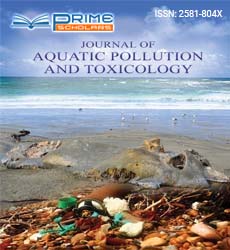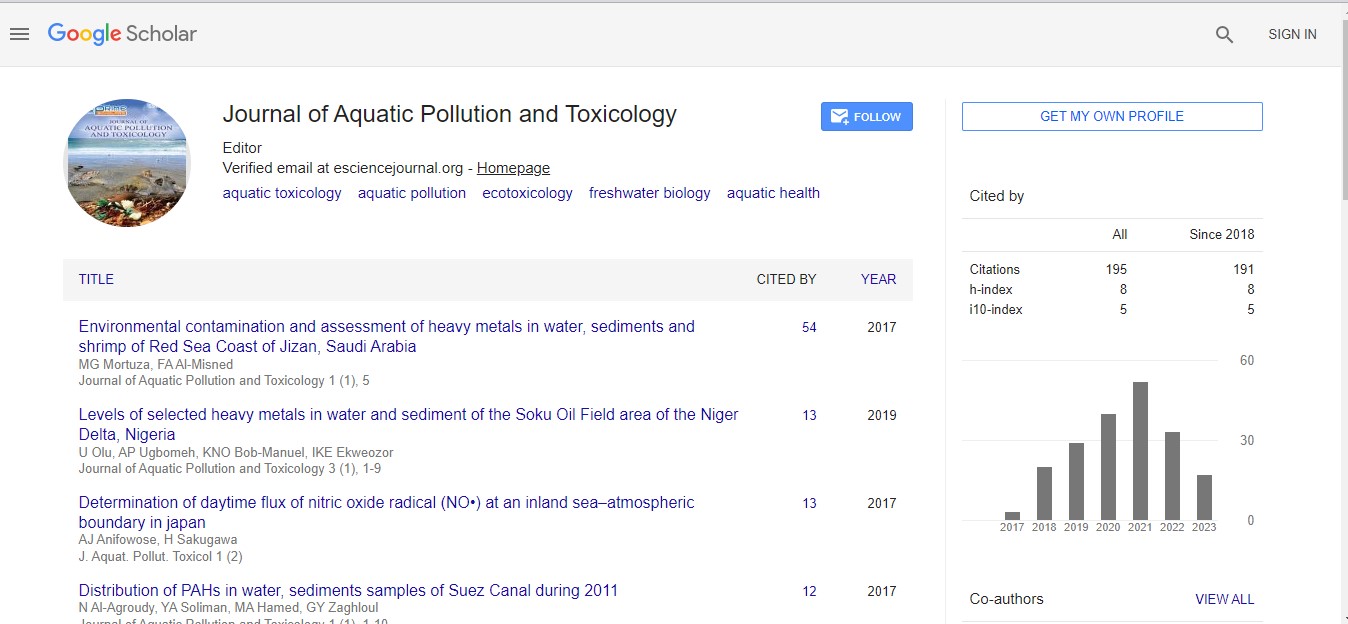Commentary - (2024) Volume 8, Issue 3
Understanding Environmental Conservation: A Path to a Sustainable Future
Ren Kato*
Department of Aquatic Science, Nagasaki University, Japan
*Correspondence:
Ren Kato,
Department of Aquatic Science, Nagasaki University,
Japan,
Email:
Received: 02-Sep-2024, Manuscript No. IPJAPT-24-21320;
Editor assigned: 04-Sep-2024, Pre QC No. IPJAPT-24-21320 (PQ);
Reviewed: 18-Sep-2024, QC No. IPJAPT-24-21320;
Revised: 23-Sep-2024, Manuscript No. IPJAPT-24-21320 (R);
Published:
30-Sep-2024, DOI: 10.21767/2581-804X-8.3.23
Description
Environmental conservation has become a critical focal
point in our increasingly industrialized and interconnected
world. Protecting nature ensures future sustainability. As
human activities continue to impact natural ecosystems and
resources, understanding and addressing environmental
issues is essential for ensuring a sustainable future. This article
explores the importance of environmental conservation, the
challenges we face, and the strategies and innovations driving
progress. Environmental conservation refers to the protection,
preservation, and restoration of natural environments and
ecosystems. Its primary goal is to maintain the balance of
nature, ensuring that the planet’s resources remain available
for future generations while safeguarding biodiversity and
ecological health. This is crucial because the health of our
environment directly affects our quality of life, including the
air we breathe, the water we drink, and the food we consume.
Several challenges threaten environmental conservation efforts.
Climate change is arguably the most pressing issue, driven by
greenhouse gas emissions from fossil fuels, deforestation, and
industrial activities. Rising global temperatures lead to extreme
weather events, melting ice caps, and shifting ecosystems,
which in turn affect wildlife and human communities. Another
significant challenge is habitat loss. Urbanization, agriculture,
and logging lead to the destruction of natural habitats, which
can endanger countless species and disrupt ecological balance.
Pollution, from plastic waste in oceans to chemical runoff
in rivers, further exacerbates environmental degradation,
harming both wildlife and human health. Addressing these
challenges requires a multi-faceted approach involving policy
changes, technological innovations, and individual actions.
Effective environmental policies and regulations are crucial for
conservation. Governments and international organizations
play a key role in setting standards and enforcing laws that
protect natural resources and regulate pollutants. Agreements
like the Paris Agreement aim to combat climate change by
limiting global warming and promoting sustainable practices.
Promoting sustainable practices across various sectors is
essential. In agriculture, for example, techniques such as
crop rotation, organic farming, and agroforestry can reduce
environmental impact. In industry, adopting green technologies
and reducing waste through recycling and circular economy
principles contribute to conservation efforts. Technological
advancements are pivotal in addressing environmental
challenges. Innovations such as renewable energy sources (solar,
wind, hydro), electric vehicles, and energy-efficient buildings
help reduce our carbon footprint. Additionally, advances in
waste management technologies and pollution control systems
can mitigate environmental harm. Public awareness and
education are vital for fostering a conservation-oriented mind
set. Environmental organizations and community groups work
to raise awareness about conservation issues and promote
responsible behaviours. Conservation programs, such as wildlife
reserves and reforestation projects, also play a significant role
in preserving ecosystems and biodiversity. Individuals can
contribute to environmental conservation through everyday
actions. Simple steps like reducing energy consumption,
minimizing plastic use, and supporting sustainable products
can collectively make a significant impact. Engaging in local
conservation efforts, such as participating in clean-up drives
or planting trees, also helps enhance community involvement
in protecting the environment. The path to a sustainable
future requires a collaborative effort involving governments,
businesses, and individuals. By addressing the challenges of
climate change, habitat loss, and pollution through effective
strategies and innovations, we can work towards a healthier
planet.
Acknowledgement
None.
Conflict Of Interest
None.
Citation: Kato R (2024) Understanding Environmental Conservation: A Path to a Sustainable Future. J Aquat Pollut Toxicol. 8:23.
Copyright: © 2024 Kato R. This is an open-access article distributed under the terms of the Creative Commons Attribution License, which permits unrestricted use, distribution, and reproduction in any medium, provided the original author and source are credited.

